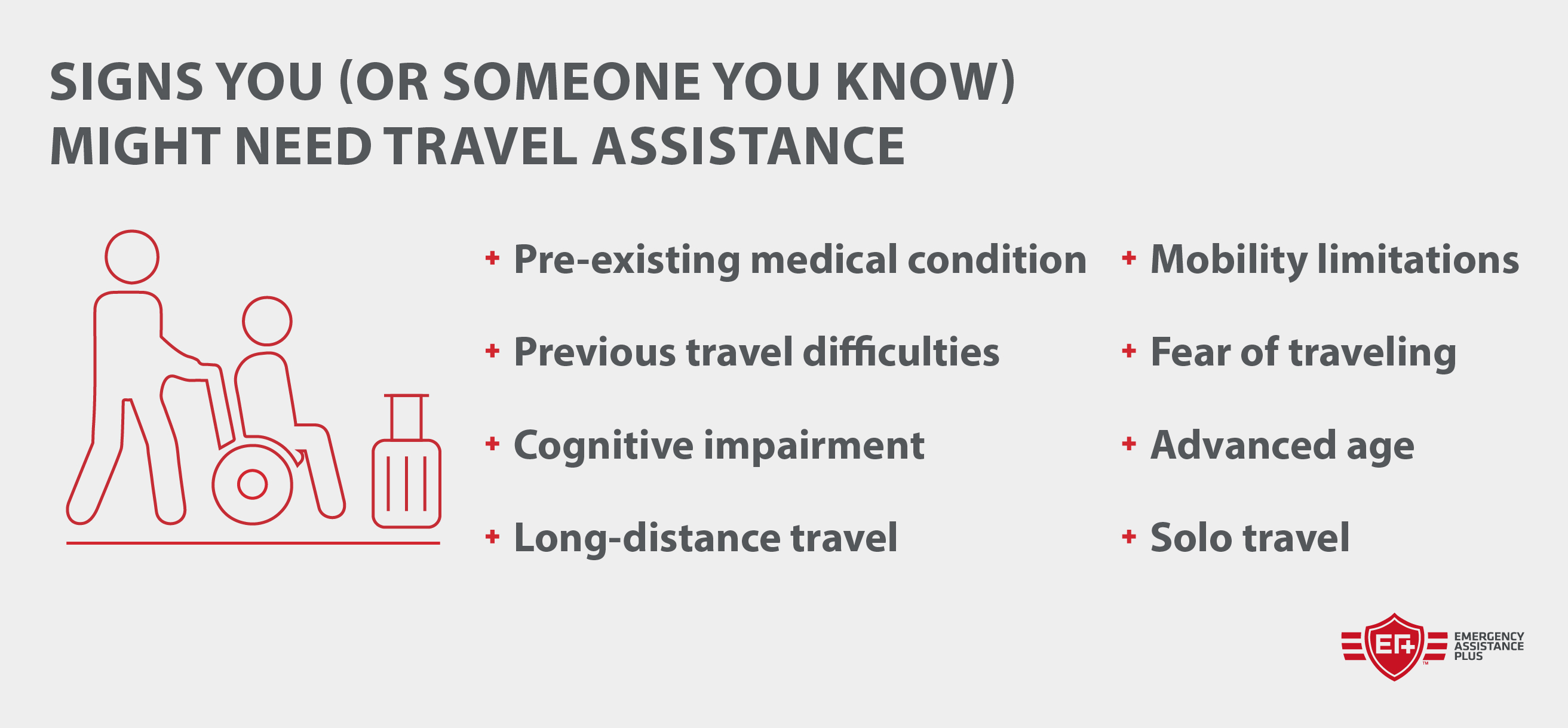Assisted travel for elderly individuals is gaining significant attention as the senior population grows. This burgeoning field encompasses a range of services designed to make travel accessible, safe, and enjoyable for older adults with varying needs and mobility levels. From specialized tour operators catering to specific requirements to accessible public transport options and private car services offering personalized assistance, the options are diverse and constantly evolving.
This guide explores the various aspects of assisted travel for the elderly, offering valuable insights for both seniors and their families.
Understanding the nuances of planning and booking assisted travel is crucial. This involves careful consideration of accessibility features in accommodations, transportation, and attractions, as well as proactive measures to ensure safety and security throughout the journey. Moreover, the emotional and social benefits of travel for seniors cannot be overlooked, as it often contributes to a higher quality of life and combats social isolation.
This guide will delve into these critical aspects, providing practical advice and resources to facilitate seamless and enriching travel experiences for the elderly.
Types of Assisted Travel for the Elderly
Planning travel for seniors requires careful consideration of their mobility and health needs. A range of options exists to ensure safe and enjoyable journeys, catering to varying levels of assistance required. Choosing the right mode of transport depends on factors such as the senior’s specific needs, the destination, budget, and desired level of independence.
Private Car Services
Private car services offer personalized door-to-door transportation, providing a high level of convenience and support. These services often include wheelchair accessibility, assistance with luggage, and drivers trained to handle the specific needs of elderly passengers. However, this option is typically the most expensive. Companies specializing in senior transportation often offer additional services such as pre-trip planning and assistance with airport transfers.
The cost varies significantly depending on distance, duration, and the level of assistance required.
Specialized Tour Operators
Numerous tour operators specialize in catering to the needs of senior travelers. These operators often design itineraries with less strenuous activities, provide accessible accommodations, and offer assistance with mobility. They may incorporate slower paces, shorter travel days, and more frequent rest stops. While these tours can be more expensive than independent travel, they offer a comprehensive and worry-free experience.
The level of support provided varies significantly depending on the specific tour operator and the chosen itinerary.
Accessible Public Transportation
Public transportation, including buses, trains, and airplanes, is becoming increasingly accessible to seniors with disabilities. Many public transportation systems offer wheelchair ramps, accessible restrooms, and priority seating. However, navigating public transport can be challenging for some seniors, especially those with limited mobility or cognitive impairments. This option is generally the most affordable, but it requires more planning and self-reliance.
Advance booking and awareness of accessibility features are crucial for a smooth journey.
| Travel Mode | Cost | Accessibility Features | Support Services Offered |
|---|---|---|---|
| Private Car Services | High | Wheelchair accessibility, assistance with luggage | Door-to-door service, pre-trip planning, airport transfers, driver assistance |
| Specialized Tour Operators | Moderate to High | Accessible accommodations, adapted itineraries | Guided tours, assistance with activities, pre-arranged transportation |
| Accessible Public Transportation | Low | Wheelchair ramps, accessible restrooms, priority seating | Limited assistance, may require self-reliance |
Safety and Security during Assisted Travel: Assisted Travel For Elderly

Assisted travel for the elderly offers invaluable opportunities for exploration and connection, but it’s crucial to acknowledge and mitigate the inherent safety and security risks. The unique vulnerabilities of older travelers necessitate a proactive approach to ensure a positive and worry-free experience. This section details potential hazards and provides practical strategies for minimizing them.Potential Safety Concerns and Risk Mitigation Strategies
Falls and Medical Emergencies
Falls are a significant concern for elderly travelers, often resulting from decreased mobility, medication side effects, or unfamiliar environments. Medical emergencies, ranging from minor ailments to serious conditions, can also arise unexpectedly. Comprehensive travel insurance is paramount, covering medical evacuation, hospitalization, and repatriation. Choosing accommodations with accessibility features, such as grab bars in bathrooms and elevators, significantly reduces fall risks.
Furthermore, carrying a readily accessible medical information card detailing allergies, medications, and emergency contacts is essential. Pre-trip consultations with physicians to address potential health concerns and obtain necessary prescriptions are also highly recommended. Packing a well-stocked first-aid kit tailored to individual needs further enhances preparedness.
Fraud and Scams, Assisted travel for elderly
Elderly travelers are unfortunately vulnerable to scams targeting their finances and personal information. These can range from overcharging for services to identity theft. Awareness and vigilance are key. Advising elderly travelers to be wary of unsolicited offers, verify the legitimacy of tour operators and transportation services, and avoid carrying large amounts of cash are critical preventative measures.
Using secure payment methods, such as credit cards with fraud protection, is strongly recommended. Sharing travel itineraries with trusted family members or friends and regularly checking bank accounts for unusual activity helps detect and prevent fraud.
Scenario: Handling a Medical Emergency
Imagine Mrs. Eleanor Vance, 78, participating in an assisted tour of Rome. While exploring the Colosseum, she experiences a sudden dizzy spell and falls, injuring her wrist. Her travel companion, noticing her distress, immediately calls the tour guide. The guide, trained in basic first aid, assesses the situation and calls for emergency medical services.
Meanwhile, the companion utilizes the pre-prepared emergency contact information to notify Mrs. Vance’s family. The ambulance arrives promptly, and Mrs. Vance is transported to a nearby hospital. Her travel insurance covers the medical expenses, and her family is kept informed throughout the process.
This scenario highlights the importance of preparedness: having a well-defined emergency plan, including readily accessible contact information and comprehensive travel insurance, can significantly improve the outcome of unexpected events.
Planning assisted travel for elderly individuals requires meticulous attention to detail, encompassing accessibility, safety, and emotional well-being. By understanding the various travel options available, considering individual needs, and implementing proactive safety measures, it’s possible to create memorable and enriching travel experiences for seniors. This guide serves as a starting point for a journey filled with exploration, connection, and cherished memories, emphasizing that age should not be a barrier to the joy of travel.
Do not overlook explore the latest data about acripie que es.

